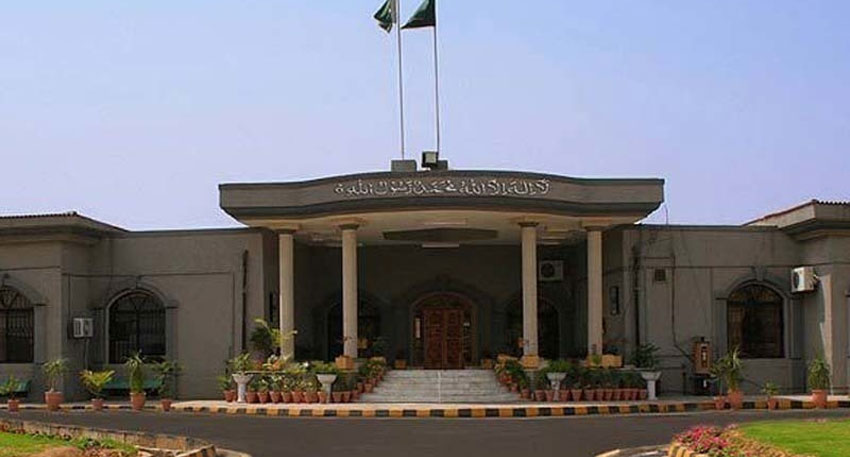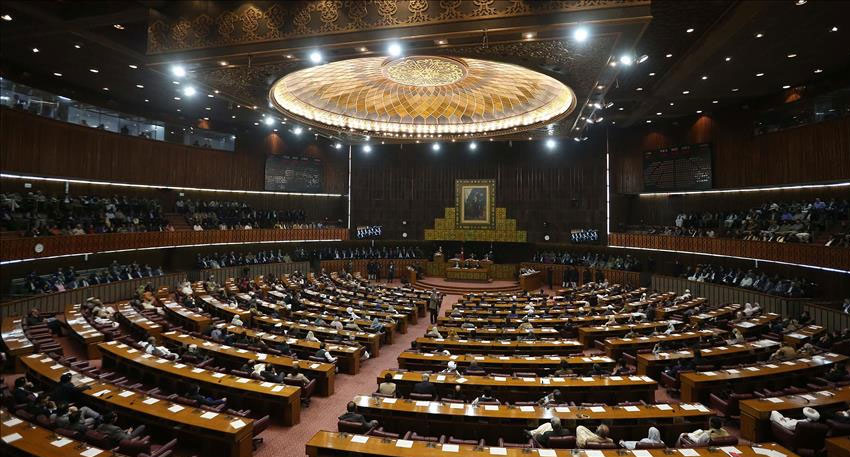Justice Ijaz Ishaq Challenges IHC Rules, Warns of Judicial Overreach Ahead of Full Court Meeting

Exterior views of the Islamabad High Court, now at the center of a judicial independence debate following Justice Ijaz Ishaq’s dissenting letter.—Photo: File
September, 3 2025
(Web Desk): Justice Ijaz Ishaq has challenged the new IHC rules, warning they bypass full court approval and undermine judicial independence.
In Islamabad, fresh tremors have struck the judiciary just before the highly anticipated full court meeting, as Justice Sardar Ijaz Ishaq has circulated a sharply worded two-page letter that lays bare his discontent with the way the judicial process is being handled. The letter, surfacing only days before the full bench convenes, is poised to intensify debates surrounding the recently issued Practice and Procedure Rules, exposing fissures within the Islamabad High Court and raising fundamental questions about judicial independence.
Justice Ishaq’s letter highlights that the rules were notified in the Gazette without full court approval, a move he described as a circumvention of proper procedure. He underscored that judges were provided the rules barely a day and a half before the meeting, reducing the upcoming deliberation to nothing more than a formality. He insisted that the Lahore High Court had offered judges detailed presentations when adopting rules, and a similar exercise should have been conducted for the Islamabad High Court. Without such consultation, he argued, his ability to provide a meaningful opinion was rendered impossible.
The Justice also demanded that the exclusion of senior-most judges from the Administrative Committee be discussed as part of the agenda. He emphasized that any action taken under the new Practice and Procedure Rules, without the express endorsement of the full court, could be deemed unlawful. His words reflect deep concerns over the legality and transparency of the process, underscoring the risk of overreach when judicial decisions are made without collective approval.
Equally striking are his objections to the requirement that judges obtain a no-objection certificate (NOC) before travelling abroad. Justice Ishaq warned that such restrictions violate fundamental rights and give unchecked authority to the Chief Justice, effectively empowering him to decide whether judges spend their leave in Pakistan or overseas. He described this practice as a grave infringement of judicial freedom, asserting that no law permits restraining judges’ foreign travel on the basis of administrative discretion.
Moreover, he pressed for debate on the formation of benches and the discretionary transfer of cases under the prerogative of the “master of the roster.” According to him, these practices must be scrutinized in the full court meeting to ensure transparency and accountability.
Justice Ishaq’s intervention throws into sharp relief the simmering tension over the balance of power within the judiciary. His pointed questions about legality, procedure, and the concentration of authority in the office of the Chief Justice spotlight the struggle over judicial independence in Pakistan. With the full court meeting now overshadowed by his dissent, the Islamabad High Court finds itself at the centre of a defining confrontation—one that could reshape the boundaries of administrative authority, collective decision-making, and the very ethos of judicial governance.
Must Read

NADRA updates NICOP fees for overseas Pakistani’s in Oman, Qatar and Saudi Arabia
September, 3 2025

Punjab to launch electric buses in another district this October
September, 3 2025

Hanif Abbasi slams defence minister, urges resignation over bureaucracy remarks
September, 3 2025

Toyota launches its cheapest smart EV - Its advanced features inside!
September, 2 2025
